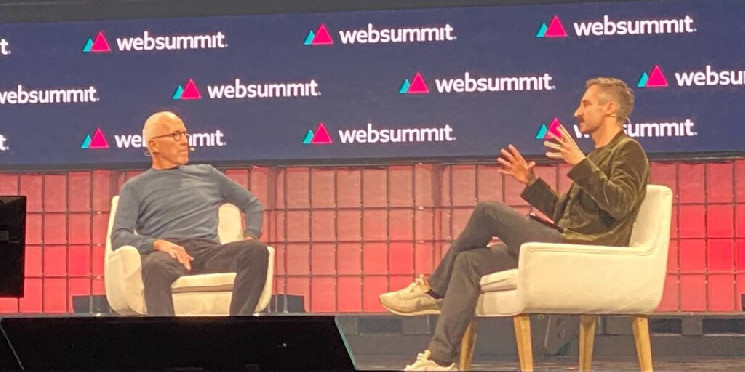Billionaire real estate developer Frank McCourt targeted “dodgy cryptocurrencies and silly NFTs” for ruining the narrative around blockchain.
Speaking at Web Summit 2023, McCourt noted that his own project, the open internet protocol DSNP, was not tokenized. “Dodgy cryptocurrencies and silly NFTs are not the same as core technology that can actually help make the internet better for us,” he said, adding that “the story has been somewhat spoiled.”
Blockchain has the potential to “fix the internet,” he said. “And by fix I mean identity, provenance, verifiable attributes, attestations. These are the things that the blockchain actually does extremely well: immutable facts, non-corruptible information.”
DSNP, or Decentralized Social Network Protocol, uses Frequency, a layer 1 parachain Dotfor the “fundamental implementation of the social graph and public message routing” – although it takes pains to note that the social graph is “not linked to financial incentives by crypto tokens or private company database servers.”
McCourt and Project Freedom
McCourt, who stepped down as CEO of real estate company McCourt Global in 2022 to focus on his nonprofit Project Liberty, took the stage at Web Summit to unveil a manifesto for a “better internet.”
The internet in its current state is broken, unjust and dangerous. A new and better web is being built. Do you want to be part of it? Read our manifesto: https://t.co/rl07wa9Tml pic.twitter.com/IlJTAqv8F0
— Project Liberty Action Network (@PLactionnetwork) November 14, 2023
In the manifesto, McCourt argues that big tech and social media platforms have caused “profound damage” to society, creating a “techno-capital engine, incentivized to stalk, manipulate and rob people.” He added that AI could act as a “powerful accelerator” for these negative trends, calling on internet users to “own your data and take back your digital rights.”
“Project Liberty is pro-technology,” McCourt said on stage. “But it is not a pro-autocratic, centralized surveillance technology.”
He added that DSNP has already migrated more than 170,000 users from the social media platform MeWe Web2 to its protocol, and expects this number to reach 300,000 by the end of the year, and more than a million by the end of the first quarter of 2024.
McCourt argued: “Instead of us clicking on the terms of use of five big giant platforms, what if the new apps click on our terms of use for how our data is used?”

